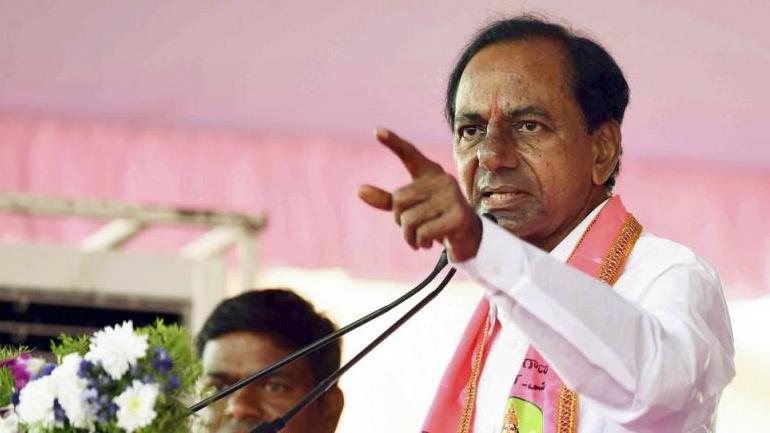Is KCR trying to put an end to 'unions' in Telangana?
By Newsmeter Network
Hyderabad: Telangana and unions are inseparable. The formation of Telangana itself is the result of a collective fight of unions, which no one can deny.
Unions belonging to students, government employees, private employees, social and caste organisations spearheaded the Telangana statehood agitation between 2009 and 2013, which eventually led to the bifurcation of Andhra Pradesh and formation of the new state of Telangana in 2014.
If not for the 42-day-long Sakala Janula Samme in 2011 called by various unions demanding the statehood for Telangana, which brought the entire AP to a standstill, can anyone imagine the then Congress-led UPA government at the Centre giving in to the demand and initiate the process of formation of Telangana state in 2013?
Though TRS supremo K Chandrasekhar Rao launched the next phase of Telangana statehood agitation in 2001, the movement became a force to reckon with only after various unions joined him in 2009. It forced the then UPA government to take a call on an issue that had been kept pending since the 1970s.
Government employees' unions boycotted their duties, RTC staff and workers' unions confined buses to depots, Singareni employees stopped coal mining leading to a coal shortage for power production, bringing the Centre to its knees and grant the statehood for Telangana in 2014.
In the new Telangana state, KCR stormed to power on the back of these unions, winning 62 of 119 Assembly seats and became the first CM in June 2014, though it's a fact that TRS was never a formidable force in Telangana region in undivided AP since its launch in 2001.
TRS could win just 26 Assembly seats in 2004 and faced even more humiliating defeat in 2009 Assembly polls, bagging just 10 seats.
KCR too acknowledged the role of the unions in the formation of Telangana and announced big salary hikes and a special Telangana increment for employees soon after he became CM.
Now the situation has reversed, with the same KCR making all efforts to put an end to the union culture in Telangana.
Why this sudden change in KCR now?
Because KCR, as the CM, now wants all the unions to run as per his whims and fancies and that they should not challenge him.
The TSRTC employees recently challenged KCR and went on a 52-day-long strike to press their demands, angering the chief minister.
KCR maintained an adamant stand on RTC strike. He threatened to sack the 52,000-strong RTC staff, close the state transport body and privatise its routes. The state also waged a legal battle in the High Court against the RTC strike.
KCR's tough stand paid off, compelling the RTC staff to end their agitation without achieving a single demand. The CM immediately made 'strategic moves' to end employees' unions in RTC by exploiting the present situation to his advantage.
He suddenly invited five employees from each depot with a condition that none of them should be affiliated to any union to his lavish Pragathi Bhavan, had lunch with them and showered various sops on them. He isolated union leaders and asked the staff to desist from unionism saying he will constitute RTC Employees Welfare Councils to replace unions. These Councils will take care of the welfare of the employees, he said. KCR also made it clear that he would not hold union elections in RTC for the next two years.
All the RTC employees were forced to give in writing to the Labour Commissioner that they didn't need unions and they wanted the welfare councils proposed by KCR. The CM feels that if elections are not held for two years, the unions will die automatically.
KCR is now trying to adopt the same formula in "Singareni Colleries'. The elections are due in October, but the CM has postponed them. He is trying to avoid polls for another two years.
Next in KCR's hitlist are teachers' unions, government employees' unions like TNGOs, TGOs.
Whether KCR will succeed in putting an end to 'unionism' in Telangana remains to be seen as Telangana as a society is known for fighting and challenging the governments and oppressive rulers for long.